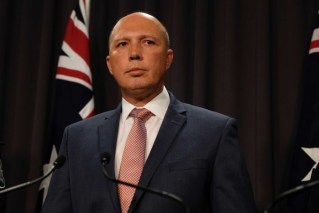Dead reckoning: Banks do a poor job when it comes to deceased estates
Australia’s banking industry does a poor job handling deceased estates, sometimes charging fees for services no longer provided and failing to treat next of kin with respect and kindness, an independent inquiry has found.

The Banking Code Compliance Committee said on Friday that after studying the practices of six banks, including each of the Big Four, it would be commencing investigations into the compliance of three of them with their obligations.
“Managing the affairs of a loved one who has passed away is difficult,” said the committee’s independent chair, Ian Govey.
“Unfortunately, our inquiry found practices that were contributing to the difficulty of managing a deceased estate.
“While there were instances of good practice, and the issues varied across the banks, we found inadequate systems, processes and procedures were making a difficult time worse for the bereaved.”
The committee’s 35-page report said banks sometimes failed to act on requests or instructions within the obligatory 14 days of receiving notifications or information, at times exacerbating the emotional distress of grieving families.
Some had fragmented systems that led to delays and the report cited a concerning lack of guidance, support and training for staff about how to deal with representatives of deceased customers.
“Two banks I dealt with both lost documentation and then made me stand at the enquiry counter and recount every detail of my child’s death with other people in the queue,” one customer, who was not identified, was quoted saying.
“And I had to then deal with the deceased estates team in another state, making contact almost impossible with the time difference.”
Another complained that while most banks were compassionate, one kept referring to their deceased spouse as a “case” and the operator didn’t understand why they found that disrespectful.
“I complained about it and received an apology but anyone working in a team that deals with deceased estates should receive adequate training before talking to bereaved.”
A third relative complained that “everything was painstakingly antiquated,” with the bank demanding original copies of paperwork, then losing it and demanding original copies again.
“If you can lodge income tax returns electronically, you should be able to identify yourself electronically too,” they said.
“The process should be friendly and not add to the difficulty of the bereaved.”
Acknowledging that the passing of a close family member was an emotional and stressful time, Australian Banking Association CEO Anna Bligh said banks took their obligations under the Banking Code of Practice very seriously.
“Australia’s banks have made significant improvements in the way they assist families during this difficult time,” she said, noting that the report covered data and information about practices nearly four years old.
“It is disappointing that this report does not accurately reflect these efforts.”
Bligh said the report also conflates the incorrect charging of personal advice fees, which was a focus of the banking Royal Commission in 2017-19, with legitimate fees for keeping and administering the ongoing needs of the deceased’s estate.
The latter is permitted under the banking code, and combining these points was misleading and confusing for readers, she said.
But despite those shortcomings in the report the ABA would encourage member banks to consider and build on its findings, she added.
The report comes after AMP Group agreed to pay a $24 million fine after its subsidiaries charged life insurance premiums and advice fees from the superannuation accounts of more than 2000 dead customers from 2011 through 2019.












